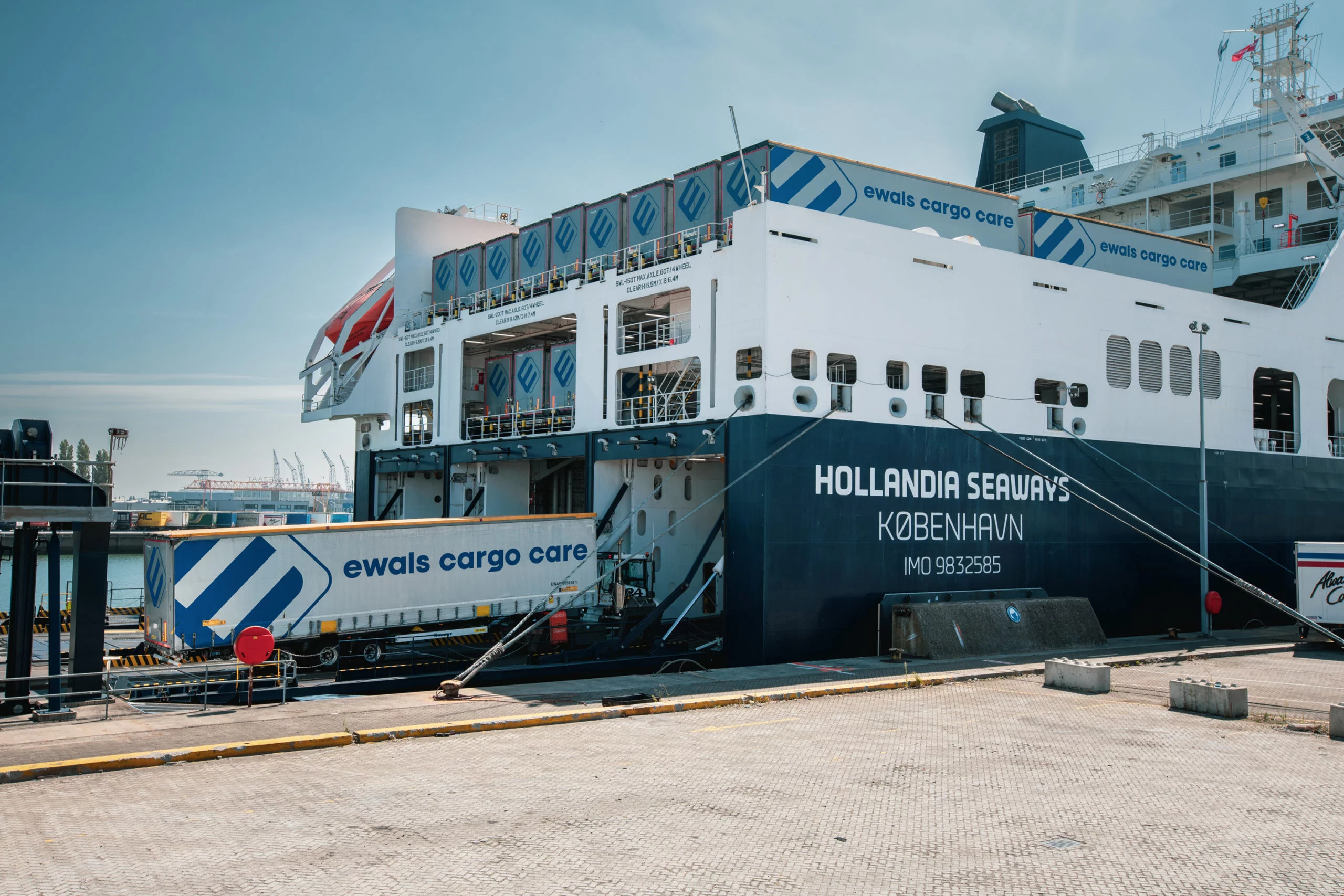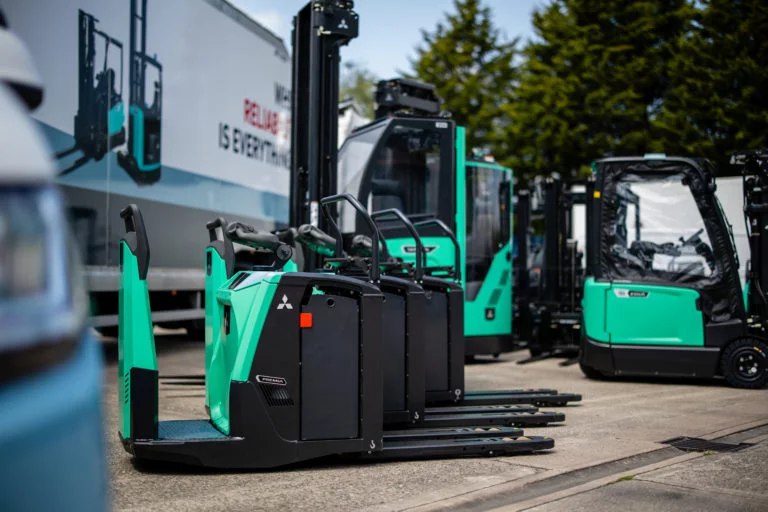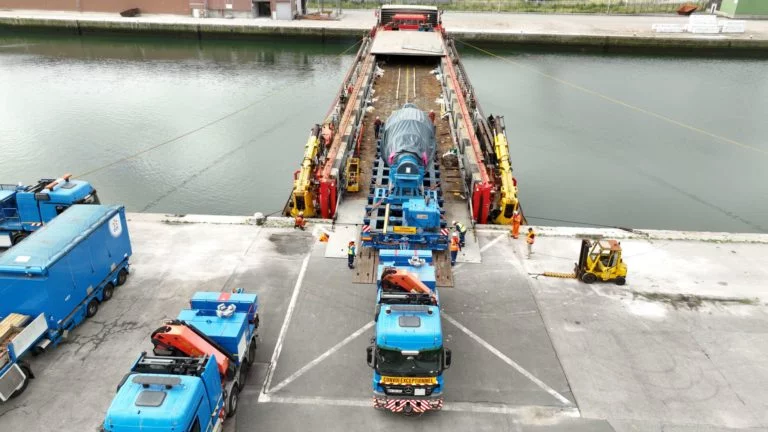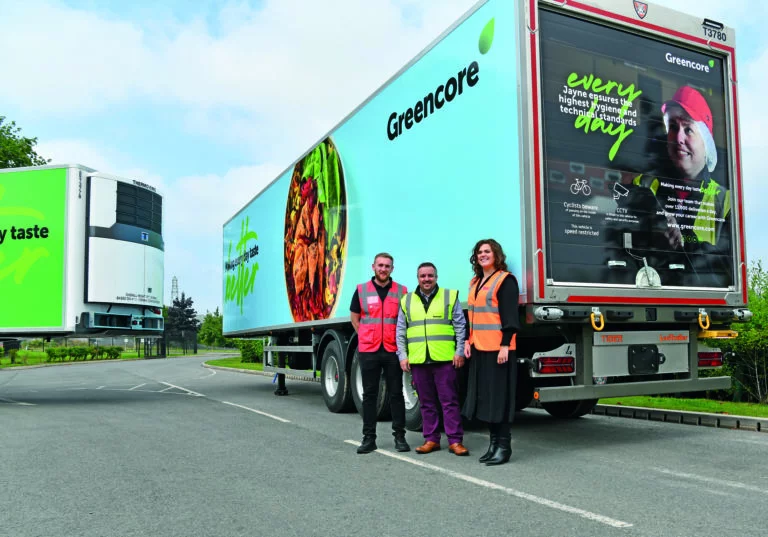The trajectory is firmly upward for Europe-wide multimodal specialist Ewals Cargo Care. Paul Hamblin meets the UK team.
It’s a long way from one man with a horse and cart in a Dutch town to 28 offices, over 2500 employees in 14 countries, and thousands of movements to the furthest reaches of Europe and back every day of the year.
But that is exactly what Ewals Cargo Care has achieved. The multimodal specialist founded as long ago as 1906 by Alfons Ewals is still family-owned, the fourth generation now overseeing an impressive growth trajectory currently comprising 4650 trailers and an accompanying control tower suite to optimise customer supply chains.
This year sees the company consolidating its ambition with a refreshed brand identity, logo and mission statement – all unveiled at Transport Logistic Munich in June – as well as an expanded website by which visitors can better navigate the range of logistics services the company now offers. “It’s not about relaunch, it’s about refinement, honouring our legacy and highlighting our future direction,” explains Michael Brand, Regional Marketing and Communications Coordinator.
The company wanted to better reflect the depth and expansion. “Two years ago, we had a network of 3800 trailers, now it’s over 4500,” he adds. “The plan is to keep increasing and the next target is 5000 – and the reason the trailers are being acquired is because the business continues to expand.”
Mega Trailer Innovator
It’s also about raising awareness. “We’re a bit of a best-kept secret in many ways,” he reflects. “Yet the Mega Trailer is something we co-created in collaboration with the automotive industry.”
The Mega Trailer is a key weapon in the ECC armoury, because its extra volume provides three precious wins for clients – shipment economy, fuel economy, and sustainability gains.

Those wins dovetail neatly with the company’s new mantra: Care, Connect, Move: “We don’t just transport cargo; we take care of it. We care for our customers, their cargo, and each other. It’s in our DNA.”
Austen King is the UK/Ireland Sales Manager and responsible for what is a key market for the company. He says that the ability to understand customer requirements deriving from years of experience is at the heart of the company’s success. A second crucial ingredient is versatility. The company’s size and reach mean it can react fast to changing circumstances – and all logistics transport professionals know what a vital quality that is.
“We are predominantly unaccompanied and that means that we have many options,” he explains. “Contingencies are a big thing for us; we can provide alternatives very quickly if needed. For instance, here in the UK we utilise at least 10 different ports, shipping via options in Holland and Belgium, also Portugal, Bilbao, Santander, Gothenburg; I could go on. We can pick up and deliver as the customer wants it to suit their needs and circumstances.”
Modal Shift
At the heart of the model is The Modal Shift, driven in part by the sustainability agenda. National and International regulators, as well as end consumers, are requiring businesses to reduce carbon emissions to meet global targets, and the transport industry is a key focus area for change.
“There are so many ways we can help make a difference,” says Austen King. “The biggest emissions savings come from utilizing short-sea and rail over direct road options but also, for instance, by better exploiting the shortest distances Let’s look at an example. Say you’re loading at Manchester, the quickest route is to Immingham then across to Zeebrugge by short-sea. If you had chosen to drive down to Folkestone to cross at Calais and then drive up through Belgium, your emissions are already higher. The point is that small tweaks applied in the right areas can be as important as the larger changes, but only if you have the network reach.”
Michael Brand adds: “Savings from 10-15 per cent all the way up to 60 per cent are possible with The Modal Shift. And it shouldn’t be forgotten that mode switch can also help address issues with driver shortages.”

ECC says it recognises its own commitment to sustainability in the trucking fleet it deploys to move trailers, currently comprising 700 own tractor units and 1200 subcontractors. All vehicles within the fleet and those sub-contracted are of Euro VI standard. This also ensures they are ready and able to use HVO 100, a biodiesel which can further reduce total emissions by up to 90%. ECC says it is an option which can be deployed into clients’ existing supply-chain operation today with minimal disruption.
Success in logistics is about adapting to industry changes and customer needs on a rolling, continuous basis. Austen King points out that this underpins the Ewals growth story as it evolves its customer base.
“We have a long history with the automotive industry,” he recounts. “Over the past five or six years we’ve increasingly moved into other areas such as recyclables, chemical, paper and packaging, as well as general industrial, even solar farm projects. The point is that we can take on massive projects reliably for the customer and meet their capacity needs due to the size of our fleet.”
Changing consumer habits have brought opportunities in new areas. “Fashion and ecommerce, for example, require quick turnaround traffic. Our connections, our local trucking bases close to hubs mean that we can do that for them. We can take deliveries from the Far East off the train in Budapest, but we can also use those locations as switch points to bring goods to UK.”
Eastern Europe has become a significant area in European logistics, he reflects. “There is now a lot more fleet in Eastern Europe, and Turkey is a big growth area, but they are a long way from the UK. A lot of this activity stems from changes in the automotive industry. These longer transit times mean we need more trailers in the network to cope with the volumes, and Mega Trailers are perfect for it. Morocco is another location we see coming into play in the future, continuing the trend of integration at the EU’s limits.”
Warehouse on Wheels
Significantly, ECC does not maintain a warehouse roster beyond two sites in Venlo (Netherlands) and Zeebrugge, preferring instead what Austen King (pictured, below) calls a “warehouse on wheels” concept. “Any touching of cargo brings cost,” he argues. “What we can do is to optimise transit times to the customer’s advantage. An example might be to use a long ferry from Spain to the UK. Yes, the journey will take 10 days, but I have the network to cope with that and, importantly, those are 10 days when the shipment is not in the customer’s warehouse. And as soon as it’s in a warehouse, that’s cost. This is why we always have detailed conversations with clients to ensure they get exactly what they want and need.”

Meanwhile, he is delighted with growth in the UK/Ireland territory: “We’ve seen double digit growth year on year, we’ve doubled headcount to almost 80 people and we moved to newer, bigger offices in 2023.”
The company is not resting on its laurels, though. “That growth has enabled us to provide renewed focus on our LTL offering and on our Control Tower services,” he reveals. He says the LTL potential is high, given the company’s cross-Europe coverage, and its own, integrated, sustainable assets backed by the local expertise in those 29 offices in 14 countries.
Does he see any threats?
“Input costs keep rising, so there is always pressure on us to keep costs down for customers. Road charges, tolls, you name it: we get over one obstacle and then another one comes along. But we’re not alone in that, so that’s a consolation!”













